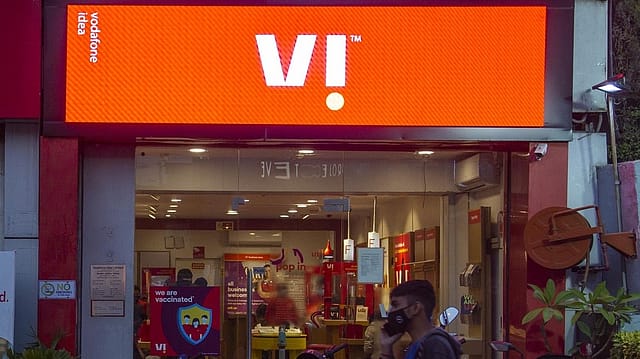Who will break the deadlock at Vodafone Idea?
ADVERTISEMENT

The ₹20,000 crore fundraising plan of debt-strapped Vodafone Idea Ltd (VIL) hit the wall as the government delayed the conversion of interest on dues into equity. The telecom operator is severely in shortage of capital to make vendor payments and the 5G rollout.
In January, the board of VIL had opted to convert the interest on its dues into equity as part of the Telecom Relief Package, but the government is yet to take a call as it wants the capital from investors and banks to flow in first. It became a deadlock when public sector banks, especially SBI, paused the talks as it had no clarity on the government's plan.
The telecom service provider has been in talks with banks, for raising ₹20,000 crore as loan and equity, in addition to the equity capital of ₹5,000 crore from the promoters Aditya Birla Group and Vodafone Plc. To give confidence to the lenders, the promoters had infused around ₹5,000 crore in May. The company even made a prepayment of ₹2,700 crore short-term loan to SBI.
"The understanding was that the government would convert the interest portion into equity immediately after the promoters' capital. When the government demanded more actions like the 5G rollout and clearing pending payments, the lenders became apprehensive about the government plan. The situation has reached a level that the survival of VIL will not be possible without government support," says a banker with a PSU bank.
Fundraising remains critical for VIL's competitiveness as the telecom operator has accumulated losses to the tune of ₹1.6 lakh crore in the last four financial years. The net debt (excluding lease liabilities) stood at ₹2.2 lakh crore as of September 30—comprising of deferred spectrum payment obligations of ₹1.37 lakh crore (including ₹17,260 crore towards spectrum acquired in the recent spectrum auction and AGR liability of ₹68,590 crore that are due to the government, and debt from banks and financial institutions of ₹15,080 crore.)
The government was supposed to convert ₹16,130 crore accrued interest on deferred adjusted gross revenue (AGR) as 33% equity. It would have made the government the single largest shareholder in the company. VIL has been in talks with multiple lenders to raise ₹20,000 crore via a mix of debt and equity, for its capital expenditure, 5G rollout and vendor payments. The banks stopped the discussions after the delay from the government's side.
After announcing the second quarter financial results, Akshaya Moondra, CEO, VIL, said the company added 4G subscribers on the back of superior data and voice experience offered by Vi GIGAnet. "In the recently held Indian mobile conference (IMC), we showcased a wide range of 5G offerings for our enterprise and consumers on the Vi 5G Live network," he said.
The board has recently approved the issuance of Optionally Convertible Debentures amounting to ₹1,600 crore to ATC India. "We continue to remain engaged with our lenders and investors for further fundraising to make required investments for network expansion and 5G rollout," he added.
The average revenue per user (ARPU) improved by 2% to ₹131 in the second quarter, compared to ₹128 in the first quarter. On a year-on-year basis, ARPU witnessed strong growth of 19.5% aided by tariff hikes and migration of subscribers to unlimited plans. The subscriber base declined to 234.4 million vis-à-vis 240.4 million in the first quarter. However, the 4G subscriber base continued to grow and with 1.5 million 4G customers added in Q2. The 4G subscriber base stood at 120.6 million in September.